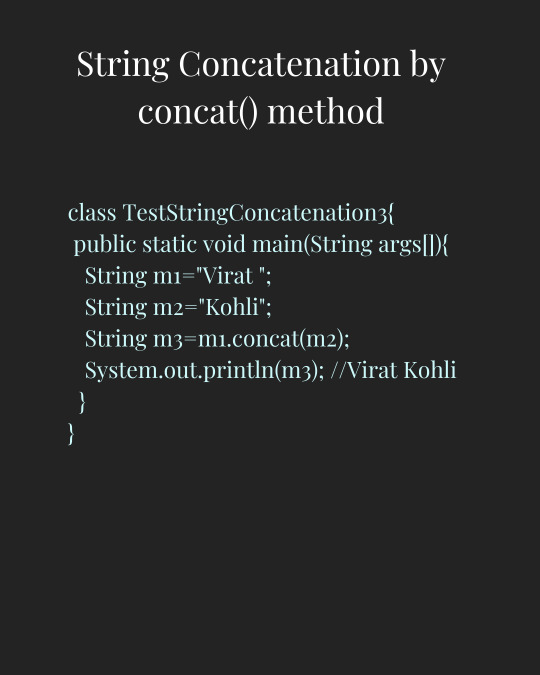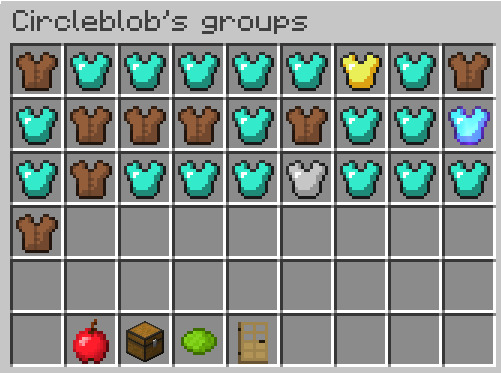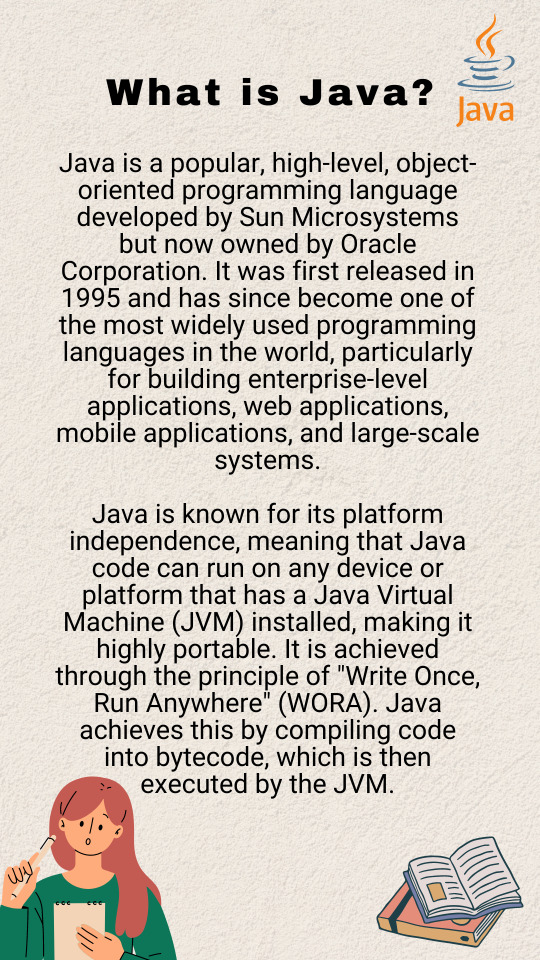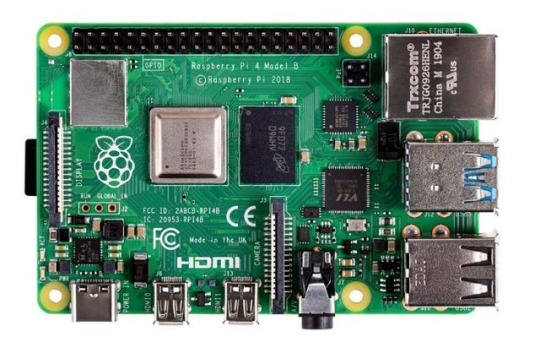#java online tutorials
Explore tagged Tumblr posts
Text

String Concatenation by concat() method
In Java, you can concatenate strings using the concat() method. This operator allows you to join two or more strings together. Here's how you can use it:
#javalanguage#javaprogramming#programming#coding#code#trending#education#technology#tech#training#engineering#software#development#softwaredevelopment#besttraininginstitute#online#onlinetraining#traininginstitute#tutorial#java
3 notes
·
View notes
Text
How Do Job Descriptions for Java Developers Look?
1. Introduction to Java Job Descriptions
Getting a grip on job descriptions is key to moving forward in your career. When students want to know what Java developer job descriptions look like, it's helpful to break it down into skills, experience, and job expectations. Whether you're just starting a Java course in Coimbatore or finishing a java Full Stack Developer Course, job descriptions can help you connect your learning with what employers want. They typically list out responsibilities, required skills, and educational background.
Key Points:
- Common skills include Core Java, Spring, Hibernate, and tools for version control.
- Levels include Entry-level, mid-level, or senior roles.
- Keywords: Java for beginners, Learn Java step by step, Java internship for students
2. Core Skills Listed in Job Descriptions
A frequent question is what core skills are expected in Java job descriptions. Employers usually look for solid knowledge of Java syntax, object-oriented programming, data structures, and algorithms. These are basics you’ll cover in foundational Java training in Coimbatore.
Key Points:
- OOP concepts like inheritance, polymorphism, and abstraction are often must-haves.
- Java basics are essential for job readiness.
- Keywords: Java basics for students, Java tutorials for students, Java course with placement
3. Frameworks and Tools Required
Modern job postings often emphasize the need for skills in frameworks like Spring Boot and Hibernate. Familiarity with version control (like Git), build tools (like Maven), and IDEs (like Eclipse or IntelliJ) is usually required. If you're taking a Full Stack Developer Course in Coimbatore, you'll likely learn these tools.
Key Points
- Full stack Java includes front-end knowledge like HTML, CSS, and JavaScript.
- These frameworks are often covered in full-stack courses.
- Keywords: Java crash course, Java full stack course for students, Java online learning
4. Experience Level and Projects
Most employers specify the experience level in their job ads. A common phrase is Entry-level Java developer with 0-2 years of experience. Mini projects and internships are often counted as relevant experience for newcomers.
Key Points:
- Java mini projects can enhance your resume.
- Internships are a valuable way for students to gain industry exposure.
- Keywords: Java mini projects, Java internship for students, Java programming course near me
5. Educational Qualifications & Certifications
Most job ads request a B.E./B.Tech in Computer Science or something similar. Having certifications can really help, especially when it comes down to choosing between similar candidates. If you’re taking a Java certification course in Coimbatore, that's a plus.
Key Points:
- Java coaching classes help prepare you for certifications.
- Certifications boost credibility for entry-level Java jobs.
- Keywords: Java certification course, Java coaching classes, Easy Java programming
6. Job Roles and Responsibilities
As you look into Java job descriptions, you'll notice they commonly mention tasks like code development, testing, bug fixes, and integration. These tasks are part of what you would learn in any Java training program in Coimbatore.
Key Points:
- You’ll need to write clean, scalable Java code.
- Understanding of SDLC and Agile is often required.
- Keywords: Java developer jobs for freshers, Java job interview questions, Java tutorials for students
7. Soft Skills and Team Collaboration
In addition to technical skills, job descriptions often mention the importance of communication and teamwork. A Full Stack Developer Course in Coimbatore might focus on soft skills to make students ready for the job market.
Key Points:
- Being a team player and communicating well is important.
- Employers often look for a problem-solving mindset.
- Keywords: Java course with placement, Affordable Java course, Java for beginners
8. Learning Opportunities and Growth
Employers often discuss opportunities for growth in their job postings. So when you wonder what Java job descriptions include, think about the chances for learning and advancing your skills.
Key Points:
- There's potential to move up into senior roles.
- Continuous learning is often encouraged through various workshops.
- Keywords: Learn Java step by step, Java online learning, Java weekend classes
9. Location, Salary, and Work Conditions
Job descriptions often specify locations, such as Java developer jobs in Coimbatore, and discuss work conditions, remote options, and salary ranges. This is especially important for students seeking roles after a Java course.
Key Points:
- The IT sector in Coimbatore is on the rise and hiring Java developers.
- Weekend classes can accommodate working students.
- Keywords: Java weekend classes, Java developer jobs for freshers, Java job interview questions
10. Conclusion
In summary, if you’re still curious about Java job descriptions, they typically focus on technical skills, real-world experience, and soft skills. Courses like the Full Stack Developer Course in Coimbatore and other Java training programs prepare you for these job requirements.
Key Points:
- Pick institutions that offer practical and placement support.
- Practical skills often matter more than just theoretical knowledge.
Frequently Asked Questions (FAQs)
Q1. What are the must-have skills in a Java job description?
You should have a good understanding of Core Java, OOPs, Spring Framework, and some basic database handling.
Q2. Is it easy for beginners to get Java jobs?
Yes, many companies are ready to hire freshers for Entry-level Java roles.
Q3. Does having a Java certification help me get hired?
Yes, certifications show that you’re serious and have the technical know-how.
Q4. What’s the average salary for a fresh Java developer in Coimbatore?
It tends to be between ₹2.5 LPA to ₹4 LPA depending on your skills and certifications.
Q5. Is project work important for Java job applications?
Yes, mini projects and internships provide the hands-on experience that employers really want.
#Java programming language#Java tutorials for students#Learn Java step by step#Java basics for students#Java for beginners#Easy Java programming#Java online learning#Java course with placement#Java internship for students#Java coding exercises
0 notes
Text
AI Automated Testing Course with Venkatesh (Rahul Shetty) Join our AI Automated Testing Course with Venkatesh (Rahul Shetty) and learn how to test software using smart AI tools. This easy-to-follow course helps you save time, find bugs faster, and grow your skills for future tech jobs. To know more about us visit https://rahulshettyacademy.com/
#ai generator tester#ai software testing#ai automated testing#ai in testing software#playwright automation javascript#playwright javascript tutorial#playwright python tutorial#scrapy playwright tutorial#api testing using postman#online postman api testing#postman automation api testing#postman automated testing#postman performance testing#postman tutorial for api testing#free api for postman testing#api testing postman tutorial#postman tutorial for beginners#postman api performance testing#automate api testing in postman#java automation testing#automation testing selenium with java#automation testing java selenium#java selenium automation testing#python selenium automation#selenium with python automation testing#selenium testing with python#automation with selenium python#selenium automation with python#python and selenium tutorial#cypress automation training
0 notes
Text
Java Tutorial: Essential Concepts Every Developer Should Know
This Java Tutorial: Essential Concepts Every Developer Should Know introduces key Java programming concepts, including object-oriented principles, data types, control structures, and multithreading. Learn Java programming through real-world applications and hands-on projects using an Online Java Compiler. Whether you're a beginner or an experienced developer, this guide helps you write efficient, scalable Java applications. Enhance your coding skills and start building with Java today!
0 notes
Text
Learn Java with an Expert Programming Tutor - Kidstuttoo
Master Java programming with a dedicated Java programming tutor from Kidstuttoo. Receive personalized guidance and hands-on practice to advance your coding skills. Our experienced tutors provide tailored lessons to help you understand complex concepts and develop practical programming expertise. Start your journey to becoming a proficient Java developer today!
#Online Maths Tutor#English Tutor Online#Yoga For Kids#Homeschooling For Kids#Best Online Tutor#kidstuttoo virtual tutor australia#english tutor australia#online english tutoring australia#online tutor australia#private tutor australia#best online tutoring services australia#Online Math Tutor Australia#Online Programming Tutor#Online Coding Tutor#python online tutor#Java Programming Tutor#online maths tutorial#programming tutor online#online mathematics tutor#java coding tutor#online maths tutoring australia
1 note
·
View note
Text
Java is a programming language and computing platform first released by Sun Microsystems in 1995. It is a class-based, object-oriented language that is designed to be portable, meaning that Java code can run on a wide variety of hardware and operating systems. Java is widely used to develop enterprise-level applications, mobile apps, video games, and other types of software.
0 notes
Text

Play.CivMC.net
Version: Java 1.20.1
CivMC is a geopolitical Minecraft server focused on civilization-building. Players form nations and establish governments, wars occur, and treaties are signed. You can play with friends, punish your ideological enemies, or raid and attack indiscriminately. All interactions and laws are player enforced, with the help of plugins that have defined the genre since it's inception as CivCraft. You can view the player run wiki here, the player run map (with rail lines, nation borders, ect) here, and the player run newsletter here. The wiki also contains a New Player Guide! Every new player gets one free teleport within 24 hours of joining, make it count! Basic information under the cut.
The primary plugins used on CivMC to make it unique are NameLayer, Citadel, and Exile Pearl. FactoryMod also deserves a mention here.
Exile Pearl is arguably the most interesting mechanic, which allows you to kill another player with an Ender Pearl on your hotbar. This will imprison said player in the Nether, and also imposes restrictions on their gameplay. Pearls degrade however, and player "Essence" is required to keep them fueled. Essence is granted on a daily basis to players after being online for 30 minutes. Requiring a somewhat active nation to keep others imprisoned. Pearled players are kept in vaults, disgustingly large and complex obsidian structures meant to have maximum security.


NameLayer acts as the base structure for many other plugins on the server. It allows players to make groups, with different ranks in said group having more, or fewer, permissions within a group. Such as who can buy from your shops, open doors and chests, or who can chat in said group. This last one is important, as the default chat range is only 1000 blocks. However there is a public global chat, just type "/global" after joining to participate, and "/local" to revert back.

Citadel is a reinforcement plugin that will make your chests harder for nefarious actors to break into, your buildings more resilient to attacks, and allows you more peace of mind during your off hours. Individual blocks, chests, doors, etc can be locked with reinforcement materials. Each material requires a set number of breaks before the block will drop. Stone is 50, iron ingots are 300, and diamonds are 2000. Virtually every build in the game is reinforced with stone, more expensive materials are reserved for more important things, like chests. NameLayer hooks into Citadel to allow granular access control for almost everything!

FactoryMod allows you to create small structures known as factories, made from a furnace, crafting table, and a chest. Factories allow for more complex recipes and items not found in vanilla minecraft. More efficient recipes than in vanilla minecraft (32 gold ore to 48 ingots, 64 cobble to 96 stone!). And cheaply available decorative blocks to make your builds nice.

There are plenty of other mechanics I haven't touched upon, like brewing alcohol for unique potion effects, how crops grow (or don't!) in certain biomes, the distribution of ores, or how you can see who broke into your home and stole all your crafting tables. See the wiki for more information on game mechanics! There are plenty of nations on the server, which I would recommend joining before trying to make your own. One of my personal favourites is the nation of Pavia, locted at (800, -3000)

Pavia is an elective meritocracy, comprising of a Prime Minister and his Cabinet, elected by the Nobility of Pavia. Pavia's territory is divided into distinct classes outlined by the foundational law of the country, the Magna Pavia. These classes administrate their own territories with varying states of autonomy and all add their own story to Pavia's ever-growing lore & history! Pavia is famous for its incredible and sprawling architecture as well as its economy, home to the largest Bank on CivMC and one of the server's most extensive shopping districts. There is a tutorial open to anyone to learn every guide and plugin which is located in the Pavia townhall, if you wish to use the server tutorial head to (+800 , -3065) inside the building on the ground floor. If you are new to CivMC, it is recommended you start off by settling in the Bedford Commons, a city just outside the capital's walls. The coordinates are (+1000, -2800).


36 notes
·
View notes
Text

Thursday 29th February 2024
Happy Leap Day! 🐸
I'm writing up a guide for learning how to stay consistent when learning programming and this section made me laugh a bit because the person who said this word for word to me was my C# + Java teacher during my apprenticeship era and we had online classes (cause of COVID) so he would literally scream this down his mic to make us remember (repetition of phrases does actually stick in your head) and now I can proudly do the same non-verbally in my guide :p
I stand on business with this opinion- no fact. No passively watching YouTube tutorials for learning how to program.

#xc: side note post#codeblr#coding#studyblr#studying#programming#comp sci#progblr#tech#programmer#motivation to study#study motivation#study tips#study aesthetic#leap day#february 29
53 notes
·
View notes
Note
hello! i'm a new college student, and the syllabus says c and java are the languages they'll teach in the first two semester. could you direct me to some resources or someone who could help if you're not interested? no pressure, thank you!
hey! i'm unsure how helpful my advice will be because i've only dabbled in c and java, but i can certainly point you in the right direction. i know how much of a pain searching for beginner-friendly resources can be. good luck in your studies, and welcome to college!
GENERAL:
there are a lot of community-curated resources in the tag awesome-list on github. check it out here, and have fun going through them all because you'll never escape
w3schools is great for referencing
this basically gives you the equivalent to a bachelor's degree in computer science and is completely free
freecomputerbooks has a c and java language category. i can't recommend you specific books though
i only discovered wikiversity was a thing when i became an adult, which is a right shame. there's free courses for computer science and information technology
C LANGUAGE:
harvard has an online course called cs50 you can find for free on freecodecamp's youtube channel (the cs50 website also includes notes for the course). it introduces computer science (and the basics of c) pretty nicely
wikiversity's "C Programming" and its wikibook companion
freecodecamp's "C Programming Handbook for Beginners"
if you ever get confused about pointers: A Tutorial on Pointers and Arrays in C
commonly asked c programming questions & answers are in this FAQ
the article "What A C Programmer Should Know About Memory" (a bit more intermediate)
JAVA LANGUAGE:
the wikibook "Java Programming"
wikiversity's java portal has links to both internal and external java resources. i'd recommend looking through it
freecodecamp's "The Java Handbook – Learn Java Programming for Beginners"
freecodecamp's online course "Java Programming for Beginners"
dev.java's "Learn Java"
the free training course offered by oracle
if anyone else has anything to add, feel free to chime in! i hope this helps :)
18 notes
·
View notes
Text
Mastering Java: Your Comprehensive Guide to Programming Excellence
Embarking on the journey of mastering Java is akin to entering a realm of endless possibilities. Java, a versatile and widely-utilized programming language, offers a broad spectrum of applications, from crafting web and mobile applications to powering robust enterprise systems. Whether you are a novice in the realm of coding or a seasoned programmer looking to broaden your skill set, the path to proficiency in Java is an exciting one.

In this comprehensive guide, we will be your guiding light through the intricacies of Java, starting from the foundational basics and progressing to the more advanced aspects of the language. Our objective is to equip you with the knowledge and skills that form a robust and unshakable foundation for your journey into the vibrant world of Java. Fasten your seatbelt as we embark on this exhilarating exploration, charting a course that will empower you to thrive in the ever-evolving landscape of software development.
Here's a 8-step guide to effectively learn Java
Step 1: Setting Up Your Development Environment
Your journey to becoming a proficient Java developer commences with setting up your development environment. The essential components are the Java Development Kit (JDK) and an Integrated Development Environment (IDE) like Eclipse or IntelliJ IDEA. These tools aren't just convenient; they're the gears that will drive your Java programming endeavors. They streamline the coding process, provide useful features, and offer an organized workspace, making your coding experience efficient and enjoyable.
Step 2: The Foundation - Learning the Basics
With your development environment ready, it's time to delve into the fundamental building blocks of Java. Begin by acquainting yourself with data types, variables, operators, and control structures. These are the nuts and bolts of the language, and a solid grasp of these concepts is essential. You'll find an abundance of online tutorials and beginner-friendly Java books to assist you at this stage.
Step 3: Navigating the World of Object-Oriented Programming (OOP)
The object-oriented programming (OOP) approach is well known in Java. To harness the true power of Java, immerse yourself in the world of OOP. Understand the concepts of classes, objects, inheritance, encapsulation, and polymorphism. This knowledge forms the bedrock of Java programming and enables you to design efficient, organized, and scalable code.
Step 4: Mastering Data Structures and Algorithms
Data structures (such as arrays, lists, and sets) and algorithms are the secret sauce behind solving real-world problems efficiently. As you progress, dive into the world of data structures and algorithms. These are the tools that will empower you to handle complex tasks and optimize your code. They're your go-to assets for creating efficient and responsive applications.
Step 5: The Art of Exception Handling
Java boasts a robust exception-handling mechanism. Understanding how to handle exceptions properly is not just an add-on skill; it's a vital aspect of writing reliable code. Exception handling ensures that your code gracefully manages unexpected situations, preventing crashes and delivering a seamless user experience.
Step 6: Exploring Input and Output Operations
In this step, you'll explore the realm of input and output (I/O) operations. Mastering I/O is crucial for reading and writing files, as well as interacting with users. You'll gain the ability to build applications that can efficiently process data and communicate effectively with users.
Step 7: Conquering Multi tasking
Java's support for multi tasking is a significant advantage. Understanding how to manage threads and synchronize their actions is vital for creating concurrent applications. Multithreading is the key to developing software that can handle multiple tasks simultaneously, making your applications responsive and scalable.
Step 8: Building Projects and Real-World Practice
Theory is only as valuable as its practical application. The final step involves applying what you've learned by building small projects. These projects serve as a proving ground for your skills and provide valuable additions to your portfolio. Whether it's a simple application or a more complex project, the act of building is where the real learning takes place.

As you step into this vibrant realm of Java, remember that continuous learning is the key to staying relevant and effective in the ever-evolving field of software development. Be open to exploring diverse applications, from web development to mobile apps and enterprise solutions, and never underestimate the power of hands-on practice. Building projects, no matter how small, will solidify your knowledge and boost your confidence.
In your quest to master Java, ACTE Technologies stands as a valuable ally. Their expert guidance and comprehensive training programs will sharpen your skills, boost your confidence, and pave the way for a rewarding career in software development. Whether you're embarking on your Java journey or looking to take your skills to the next level, ACTE Technologies offers the resources and support you need to thrive in the world of Java programming.
So, with Java as your trusty companion, and ACTE Technologies as your guide, the possibilities are boundless. Your journey is just beginning, and the world of software development awaits your innovation and expertise. Best of luck on your path to mastering Java!
9 notes
·
View notes
Text

What is Java?
Java is a popular, high-level, object-oriented programming language developed by Sun Microsystems but now owned by Oracle Corporation. Java was first released in 1995 and has since become one of the most widely used programming languages in the world, particularly for building enterprise-level applications, web applications, mobile applications, and large-scale systems.
#java#javalanguage#javaprogramming#programming#coding#code#trending#education#technology#tech#training#engineering#software#development#softwaredevelopment#besttraininginstitute#onlinetraining#tutorial#online#traininginstitute
4 notes
·
View notes
Text
Raspberry Pi Board: Revolutionizing Computing and Education

The Raspberry Pi board is a series of small, affordable single-board computers developed by the Raspberry Pi Foundation, a UK-based charity focused on promoting computer science education and digital literacy. Since its launch in 2012, the Raspberry Pi has transformed from a niche educational tool into a versatile platform used in a wide range of applications, from DIY electronics projects to industrial automation.
A Brief History
The first Raspberry Pi, the Model B, was released in February 2012. Designed to promote basic computer science in schools and developing countries, it featured a 700 MHz ARM11 processor, 256 MB of RAM, and basic connectivity options. The success of the Model B led to a rapid expansion of the Raspberry Pi lineup, with various models offering improved performance, more memory, and enhanced connectivity.
Key Features and Models
Raspberry Pi 1 Model B (2012):
Processor: 700 MHz ARM11
Memory: 256 MB RAM
Ports: 2 USB 2.0 ports, HDMI, Composite video, 3.5mm audio jack, Ethernet
Storage: SD card slot
Raspberry Pi 2 Model B (2015):
Processor: 900 MHz quad-core ARM Cortex-A7
Memory: 1 GB RAM
Ports: 4 USB 2.0 ports, HDMI, Composite video, 3.5mm audio jack, Ethernet
Storage: MicroSD card slot
Raspberry Pi 3 Model B (2016):
Processor: 1.2 GHz quad-core ARM Cortex-A53
Memory: 1 GB RAM
Ports: 4 USB 2.0 ports, HDMI, Composite video, 3.5mm audio jack, Ethernet
Wireless: Wi-Fi and Bluetooth
Raspberry Pi 4 Model B (2019):
Processor: 1.5 GHz quad-core ARM Cortex-A72
Memory: Options of 2 GB, 4 GB, and 8 GB RAM
Ports: 2 USB 3.0 ports, 2 USB 2.0 ports, 2 Micro HDMI ports, Ethernet, USB-C for power
Wireless: Wi-Fi and Bluetooth
Raspberry Pi Zero (2015) and Zero W (2017):
Processor: 1 GHz single-core ARM11
Memory: 512 MB RAM
Ports: Mini HDMI, Micro USB OTG, Micro USB for power, GPIO pins
Wireless (Zero W): Wi-Fi and Bluetooth
Applications and Uses
The versatility of the Raspberry Pi has led to its adoption in numerous fields:
Education:
Coding and Programming: Used in schools and educational programs to teach students programming languages such as Python, Scratch, and Java.
Computer Science Concepts: Introduces concepts like hardware, software, and networking.
DIY Projects and Maker Community:
Home Automation: Controls smart home devices, including lights, thermostats, and security systems.
Media Centers: Powers home media centers using software like Kodi.
Retro Gaming: Emulates classic gaming consoles using software like RetroPie.
Industrial and Commercial Applications:
IoT Devices: Serves as a hub for Internet of Things (IoT) devices, enabling data collection and remote control.
Automation and Control Systems: Used in factories and labs for monitoring and controlling equipment.
Research and Development:
Prototyping: Facilitates rapid prototyping of electronic devices and systems.
Data Collection: Gathers data from various sensors in environmental and scientific research.
Community and Ecosystem
The Raspberry Pi has cultivated a vibrant global community of developers, hobbyists, educators, and students. Online forums, tutorials, and community projects provide extensive support and resources for users at all skill levels. The Raspberry Pi Foundation also offers official accessories, including cases, cameras, and expansion boards, further enhancing the functionality of the Raspberry Pi.
Conclusion
The Raspberry Pi board has revolutionized the way people learn about and interact with technology. Its affordability, versatility, and extensive support network have made it an indispensable tool in education, DIY projects, and professional applications. As technology continues to evolve, the Raspberry Pi Foundation remains committed to expanding the capabilities and accessibility of this remarkable platform, ensuring that computing remains within reach for everyone.
3 notes
·
View notes
Text
The Role of AI in Modern Software Testing Practices
AI is reshaping the way software testing is done. With AI automated testing, businesses can achieve higher efficiency, better accuracy, and faster software releases. Whether it’s AI software testing, AI generator testers, or AI-driven automation, the future of software testing is AI-powered.
#ai generator tester#ai software testing#ai automated testing#ai in testing software#playwright automation javascript#playwright javascript tutorial#playwright python tutorial#scrapy playwright tutorial#api testing using postman#online postman api testing#postman automation api testing#postman automated testing#postman performance testing#postman tutorial for api testing#free api for postman testing#api testing postman tutorial#postman tutorial for beginners#postman api performance testing#automate api testing in postman#java automation testing#automation testing selenium with java#automation testing java selenium#java selenium automation testing#python selenium automation#selenium with python automation testing#selenium testing with python#automation with selenium python#selenium automation with python#python and selenium tutorial#cypress automation training
0 notes
Text
Java Tutorial: Essential Concepts Every Developer Should Know
This Java Tutorial: Essential Concepts Every Developer Should Know covers fundamental Java programming topics, including object-oriented principles, data structures, control flow, and file handling. Learn Java programming with real-world applications and hands-on coding using an Online Java Compiler. Whether you're a beginner or an experienced developer, this tutorial helps you build robust applications and advance your Java skills efficiently. Start coding today!
0 notes
Text
How to Find the Best English Tutor in Australia and an Online Coding Tutor
Whether you are looking to improve your English language skills or master coding, Kids Tuttoo offers the best tutoring services to help you succeed. Our English tutor in Australia and online coding tutor provide personalized, effective, and convenient learning solutions tailored to your needs. Contact us today to start your journey toward achieving your educational goals with the help of our expert tutors.
#Online Maths Tutor#English Tutor Online#Yoga For Kids#Homeschooling For Kids#Best Online Tutor#kidstuttoo virtual tutor australia#english tutor australia#online english tutoring australia#online tutor australia#private tutor australia#best online tutoring services australia#Online Math Tutor Australia#Online Programming Tutor#Online Coding Tutor#python online tutor#Java Programming Tutor#online maths tutorial#programming tutor online#online mathematics tutor#java coding tutor#online maths tutoring australia
1 note
·
View note
Note
regarding getting a coding job, i guess the main tips would be, look up a language that's in demand generally (C#/.NET, Java, React and other JavaScript libraries, python tend to be the most popular) and look into self-learning online; not just tutorials, but Reddit daily programming challenges, software developer interview examples and things like that :) coding bootcamps can be useful too if you can afford them! once you get the basics under your belt, apply to as many grad roles as you can find (and anyone who says you need a college degree? they're lying)
you can create a GitHub account for free to push any coding projects you create, which also helps familiarise you with version control (key in any software role), and can be really good to show potential employers as a dev portfolio of sorts
good luck!!
Thanks anon! I got a CS degree a bit ago and I've been self-learning and working on projects since then, but got NO luck in terms of jobs 😔
I'll def try out the daily challenges tho!
I really appreciate it, thank you so much 🥺
#not a poll#anon ask#getting a job is SO difficult#hundreds of applications and barely any responses
2 notes
·
View notes